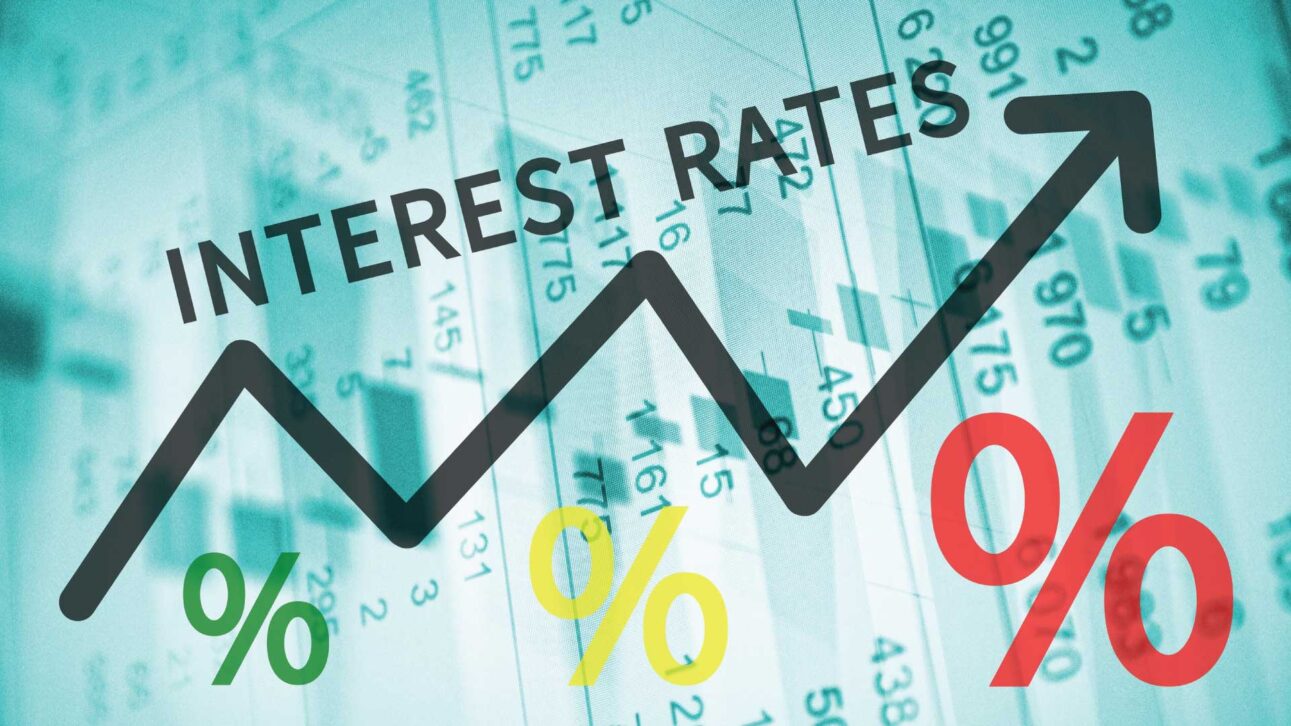Interest rates are enthusiastically studied because they have a decent record of forecasting stock market swings, at least on the surface. To hear many in the media talk, every flip and twist in stocks is directly caused by changes in interest rates. Millions of investors watch other indicators, such as inflation and unemployment, only to determine where interest rates are headed.
Some of the avid attention paid to interest rates is deserved. Falling interest rates often go hand in hand with higher stock prices. More strikingly, stocks have never suffered when short—and long-term rates were lower than in the previous year.
Primer On Interest Rates
Interest rates are best gauged through yields on various types of debt, usually bonds. Yield is the annual interest paid out, divided by the bond price.
When interest rates rise, bond prices fall because investors aren’t willing to pay as much for a bond that will pay them less than current interest rates. When bond prices fall, bond yields rise.
The exact process works in reverse when interest rates fall. Then, investors are willing to pay more to obtain existing bonds’ higher rates; bond prices rise, and bond yields fall.
As their name indicates, “long-term” interest rates are paid on debt that will be repaid in ten years or more. The best indicator of long-term rates is the yield on bonds issued by America’s most creditworthy corporations (rated AAA by the primary credit rating services). These bonds typically come due in twenty to thirty years. On such bonds, there’s minimal risk of default. So, changes in AAA bond yield only reflect interest rate swings.
Short-term interest rates are paid on debt that matures in less than a year. The best gauge here is the yield on the shortest-term debt of the U.S. government- Treasury bills. T-bills mature in less than three months and have no default risk. So, fluctuations in T-bill yields reflect only changes in short-term interest rates.

The Bottom Line
Interest rates have little or no influence on stock prices. The key is the trend in inflation, which causes both interest rates and stock prices to move. Rates are another way to gauge inflation’s effect on sustainable economic growth.
To describe the relationship between interest rates and inflation, always return to the puppet and the puppeteer analogy. Everybody in the crowd watches the puppet because he’s more interesting, but the puppeteer calls the shots.
When it comes to stocks, everybody watches interest rates. But it’s the prevailing trend in inflation that really determines the next trend for stocks and, to a large degree, where interest rates are headed. In fact, interest rates are an effective gauge of stock market swings only when they reflect the prevailing trend in inflation.
So why do investors place such great value on interest rates as prime movers of stocks? The best way to account for this wrongheaded thinking is to compare it to other myths. Similarly, many of those who follow interest rates exclusively have been successful stock investors over the years. That’s because interest rates tend to fall when inflation is low, and lower inflation leads to higher stock prices.
However, interest-rate groupies are missing the point entirely. They can forecast the market correctly most of the time because interest rates usually drop when inflation is at bay. Consider using interest rates rather than inflation as your essential investing guide.
Falling or rising interest rates do not cause stocks to rise or fall. They simply rise or fall at the same time stocks do most of the time because of trends in inflation.
Get In Touch
Our investment professionals understand that building a wealth management strategy can be overwhelming. Take your first steps toward financial freedom by scheduling a no-obligation investment consultation with a registered investment adviser representative.


